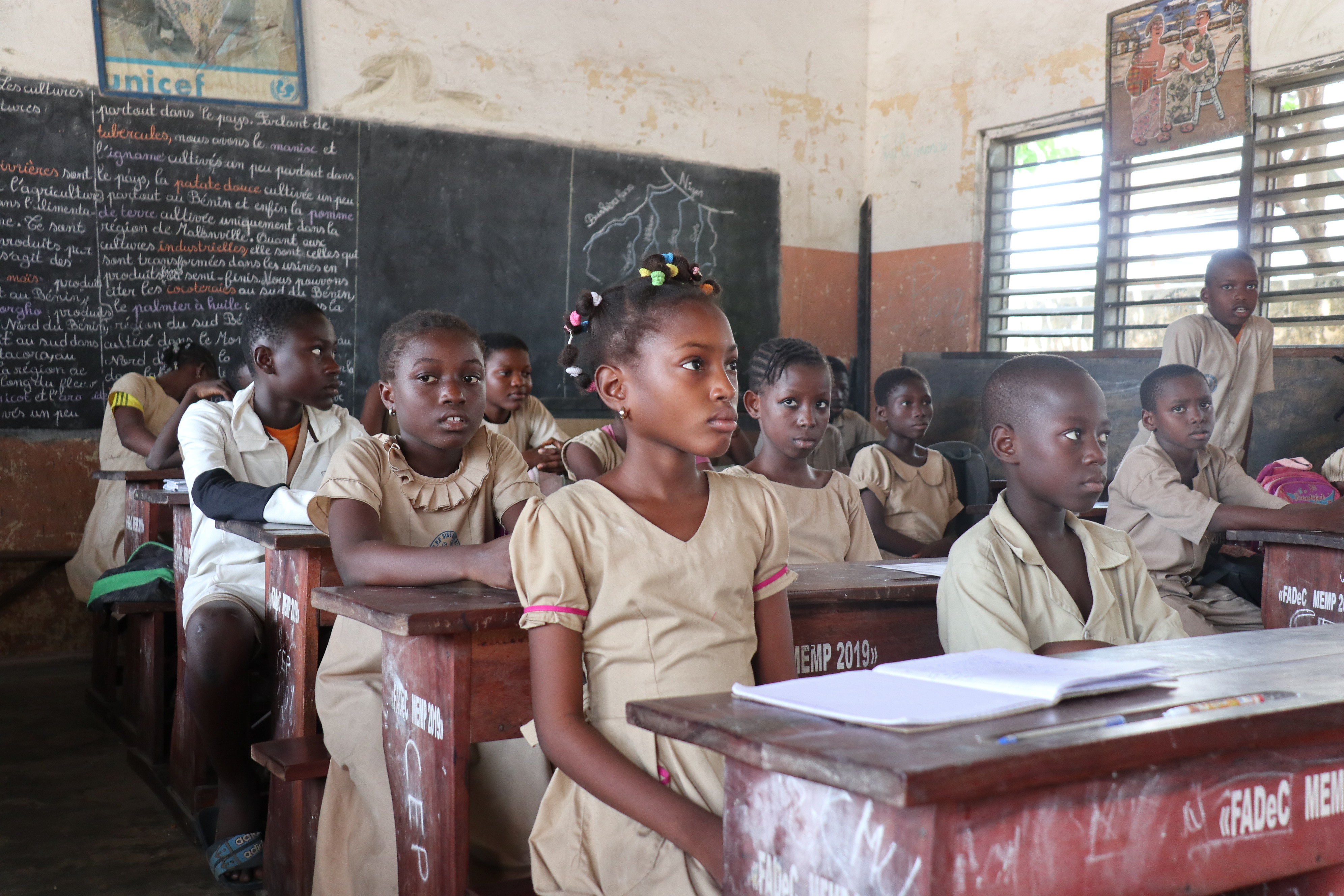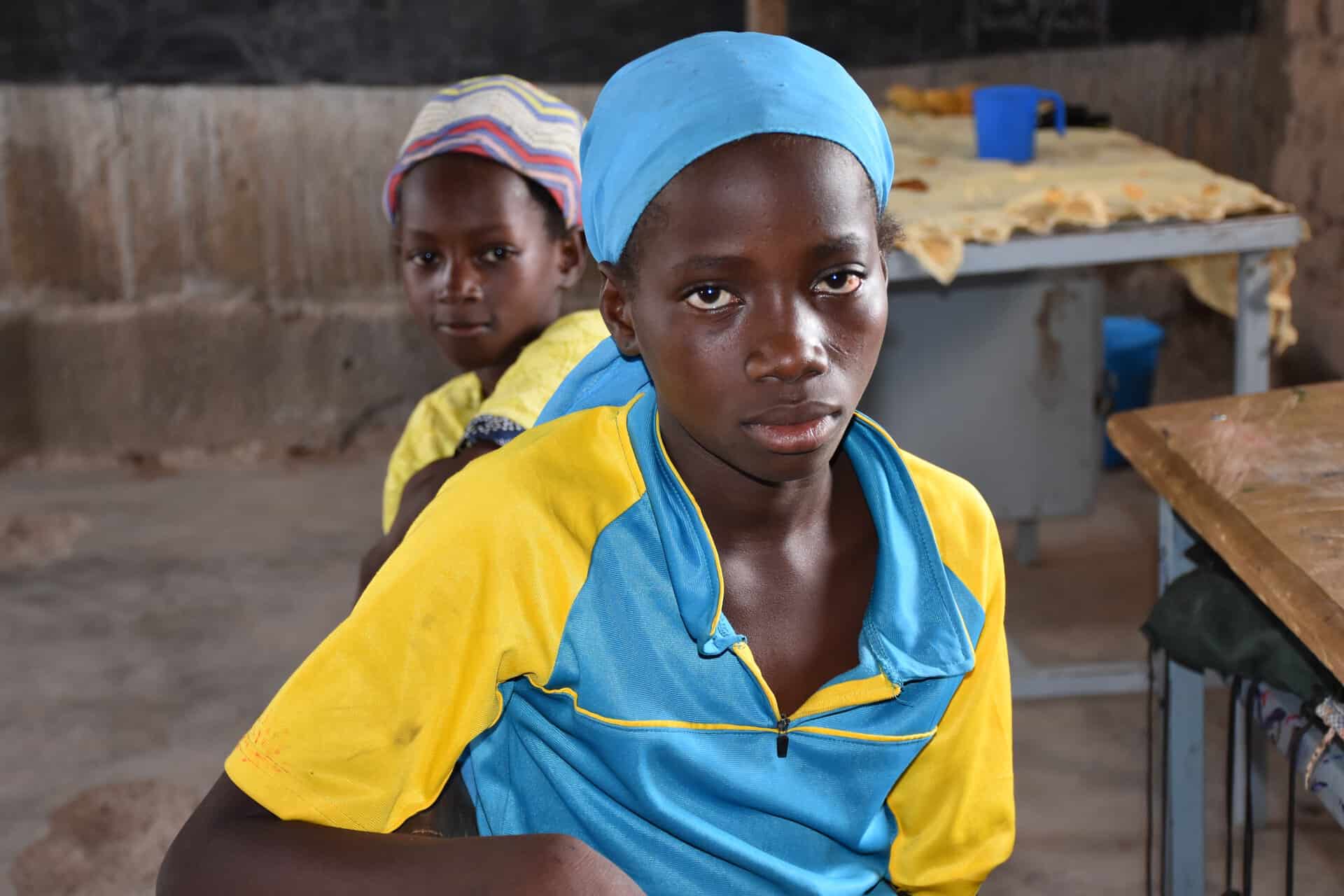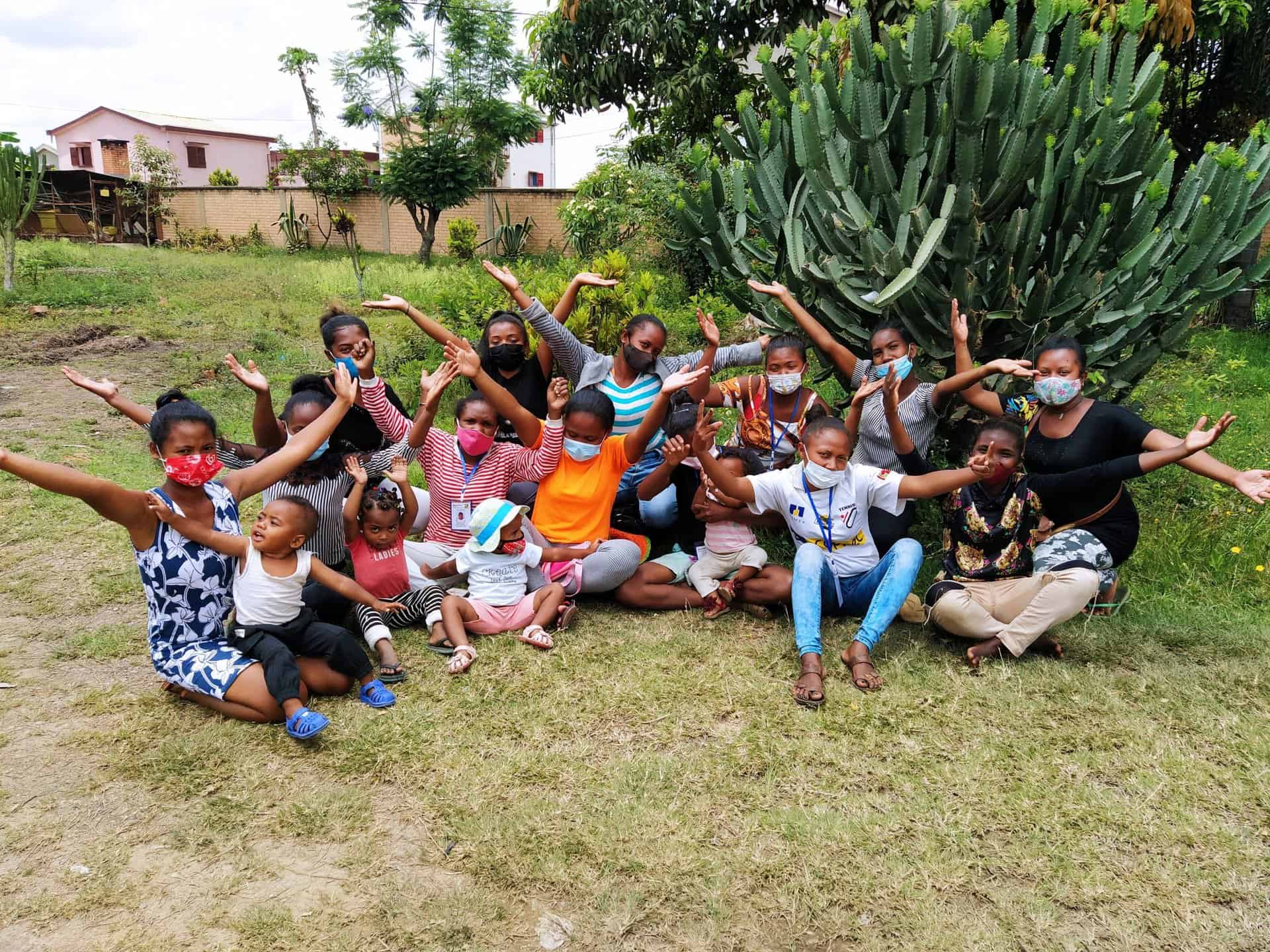Photo credit: Olivier HARRASSOWSKI
While the Generation Equality Forum - In a conference co-chaired by France and Mexico that opened yesterday, nine girls from Afghanistan, Burkina Faso, Chad, Haiti, Mali, Senegal, Togo and Tunisia are joining forces to remind us that education is a powerful tool in the fight against gender inequality and to call on leaders to ensure that all girls have access to inclusive, quality education.
We, Annie Thamar, Fatoumatou, Melissa, Madinatou, Ndeye, Oumayma, Oumou, Reine Esther, Roukiatou and Zahra, recall that education is a fundamental human right for all children, recognised 60 years ago in the Universal Declaration of Human Rights to which all UN member states are signatories. However, many children around the world, especially girls, are still denied their right to education.
Education is a formidable asset for facing life. Education allows both girls and boys to assert themselves, to guarantee their autonomy and to develop. An uneducated girl is powerless to face the difficulties of this world. She has no means of defence and is exposed to all kinds of abuse. Education is the most precious right that every child should have.
How can we envisage the development of a ÉBut what about the state if half its population is excluded? If the focus is on girls' education, they will be the spearhead of the country's development alongside boys.
Girls' education hindered by social, cultural and religious factors
Several factors explain the abandonment or failure of girls in schools: lack of infrastructure, distance from the school, lack of school transport, lack of financial means to meet school needs (enrolment, uniforms, pens, books, notebooks, access to technology, access to the library, etc.), lack of a canteen and clean and appropriate toilets, lack of menstrual hygiene, lack of sexuality education, or the weight of cultural and religious traditions, which can even lead to the sexual mutilation of some girls despite the laws.
The subject of sexuality is considered taboo in many societies. In education, girls often face discrimination. The education of girls is seen as superfluous by some parents and less important than that of boys. This situation is persistent, especially in rural areas.
The distance to school buildings is one of the reasons why girls are not enrolled in school by their parents. Where school buildings exist, they often lack classrooms, equipment, teachers and especially qualified teachers. While primary schools may be close to home, middle school, let alone high school and university, are not. All the statistics show that girls drop out of school at a much higher rate as they progress through the school system, particularly in adolescence.
Illiteracy and the marital situation (polygamy) of some parents are a problem. Gender-based violence in and out of school is an obstacle to girls continuing their schooling and completing the curriculum. Child marriages and early pregnancies are also obstacles to the education of girls and adolescent girls in particular. Moreover, in some regions, insecurity due to terrorism is an additional obstacle to their schooling.
Because of the weight of tradition on girls, they become discouraged and drop out of school at the slightest difficulty. Others refuse to go to school on their own, even if they are enrolled. These cases are most often observed in rural areas, where it is considered that the girl should help out at home or at the market rather than go to school.
Raising awareness and sensitising governments and parents
If governments and parents are concerned about the education of girls and their success in school with a view to their professional integration into society, they must take all these realities into account. Governments, parents and families, particularly in rural areas, must be sensitised and made aware of the need to invest in the success of their daughters in their studies, to enrol them in school, to encourage and support them until they obtain their diplomas and are integrated into professional life. Because a girl has the same capacities as a boy. She can take on the same responsibilities, tasks and duties as a boy. A girl can bring as much pride to her parents, and to her community, as a boy.
As young girls, we ask governments to give young girls the chance to go to school, because to educate a girl is to educate a nation. Governments need to review the education system so that it allows for better integration of girls into the workforce. Inclusive education must be guaranteed and access to education for all must be funded! We are victims of the geopolitical situation in our respective countries and we denounce this injustice. Every girl is a potential woman. Girls can change the world, but first we must change their lives. Every child has the right to an education, even in times of crisis
Zohra from Afghanistan, Madinatou from Burkina Faso, Annie Thamar from Haiti, Oumou and Fatoumata from Mali, Reine Esther from Chad, Melissa from Togo, Oumayma from Tunisia and Ndeye from Senegal, in partnership with the Education Coalition.






